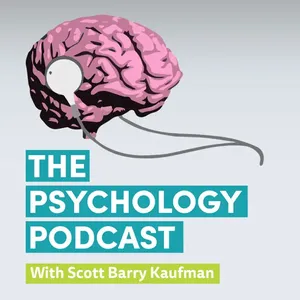
Existential Therapy
Diving straight into the heart of existence itself- that's existential therapy for you. It's not just about talking, it's about wrestling with life's biggest questions. Ready to explore the depths of your own existence?
What is Existential Therapy?
Its roots can be traced back to the realm of philosophy, particularly to Jean-Paul Sartre, who highlight that our consciousness and awareness of mortality make us unique among other beings. This revelation unveiled the responsibility of finding our identities and life purpose. For this reason, various therapists integrated these philosophical principles into their practice, giving rise to the collaborative creation of Existential Therapy.
At its essence, this form of therapy captures the fundamental challenges of human existence. These challenges are addressed in what is called the existential givens - death, limitlessness, meaning, freedom, connection, isolation, emotions, and embodiment. Through the existential givens, this therapy emphasises personal responsibility for one’s behaviour, beliefs, and pursuit of meaning, all in the present moment. Every individual is seen as possessing free will to shape their own decisions, paving a path towards a purposeful life.
The Four “Ultimate Concerns”
Coming from one of the biggest names in Existential Therapy, Irvin D. Yalom, describing them as an "inescapable part" of being human:
Mortality: We’re unique in knowing that death is inevitable. This awareness can cause anxiety for some, while others use it as a reminder to live fully and embrace the present. It also raises deep questions about our identity and existence.
Freedom: Remember wishing for freedom as a child? As adults, that freedom comes with the weight of responsibility, which can be daunting and provoke fear.
Isolation: Despite our relationships, each of us faces our own struggles alone. This sense of isolation can be particularly intense during times of depression and anxiety.
Meaninglessness: We often wonder about life’s purpose and our role in it. This quest for meaning can be both liberating and anxiety-inducing, as we navigate our own path without clear instructions.The Key Focus of ET
It focuses on fostering a clearer sense of self, recognizing that this sense is ever-changing and evolving as our lives progress.
The Existential Therapy Session
The Main Topic in ET
While death is one of the main topics addressed in Existential Therapy, there is much more that can be uncovered:
Life transitions
Understanding yourself and the world
Existential dilemmas
Grief
A profound sense of connection and relationships
Uncertainties and unpredictabilities
Fear of taking responsibility for your choices.
Existential Therapy: Benefits & Drawbacks
Strengths of Existential Therapy:
Personal Control: You drive the therapy sessions, setting themes and strategies with your therapist's guidance. This empowers you to address your fears and find personal meaning.
Holistic Approach: The therapy considers you as a whole person—mind, body, and spirit—allowing for adaptability across different cultural backgrounds and belief systems.
Limitations of Existential Therapy:
Lack of Structure: It may lack the structured guidance found in other therapies, potentially making it harder to identify and address specific issues quickly.
Dependency on Self-Motivation: The success of the therapy relies heavily on your willingness to engage and take responsibility, which can increase emotional distress and anxiety if progress is slow.
Who Benefits From ET?
Therapists report a significant increase in individuals experiencing:
existential distress, often associated with conditions such as depression, anxiety, PTSD, or substance abuse.
Recent studies have focused on specific populations, including people diagnosed with advanced cancer, incarcerated individuals, and elderly people residing in nursing homes, demonstrating both the prevalence and effectiveness of this approach. On a broader scale, Existential Therapy is not limited to a particular demographic. Anyone grappling with existential distress and seeking answers to life's profound questions can potentially benefit from it.
The Transformative Power of ET
In Existential Therapy, the real magic happens in the connection between you and your therapist. This strong, supportive bond helps you dive deep into your thoughts and feelings, boosting your confidence and giving you the tools to tackle life’s curveballs.
Instead of avoiding tough emotions, you’ll learn to embrace them as part of your journey. Life is always changing, and what feels right today might shift tomorrow. That’s completely okay!With this approach, you’ll gain the strength to navigate life’s twists and turns with confidence and peace. Existential Therapy empowers you to take charge of your responses and find comfort in the ever-changing landscape of your life.
Bringing Meaning with ET:
Existential Therapy can indeed bring more meaning to your life, but only if you allow yourself to explore and embrace that meaning. If you are not prepared to take on the responsibility of delving deeper and working towards it with the guidance of your therapist, simply relying on therapy to solve everything may lead to disappointment.
While the idea of responsibility applies to any form of therapy, even those with more structured approaches, it remains true that you are the one who must actively participate in your journey towards recovery.







